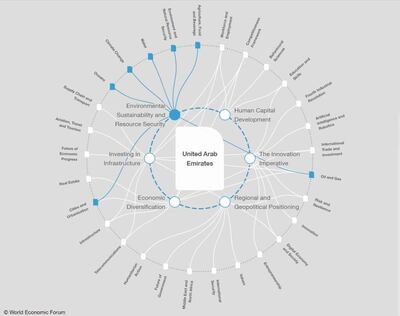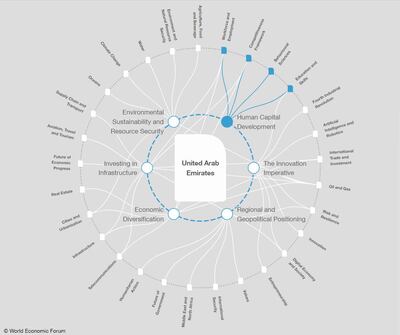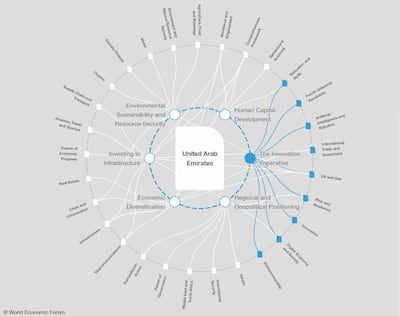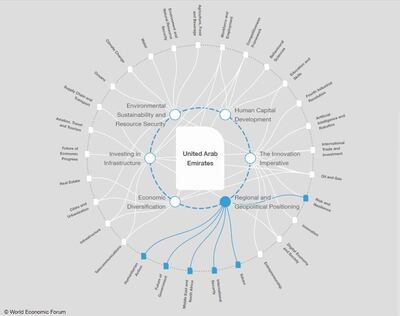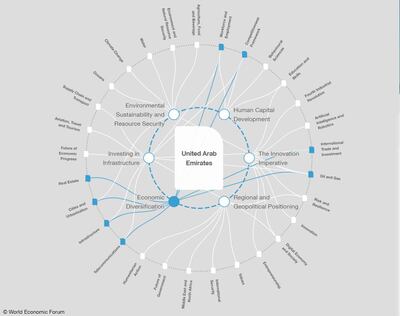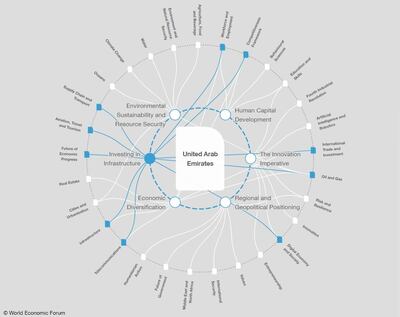The World Economic Forum (Wef) has provided public access to its “Transformation Maps”, which are dynamic, digital knowledge tools which show which key factors are shaping countries, industries and issues such as Climate Change and how they interact with each other.
This has been timed to coincide with its summit in the UAE this weekend; the Annual Meeting of the Global Future Councils 2017 being held in Dubai. Seven hundred leading experts from around the world are participating under the theme The Globalization of Knowledge in a Fractured World, and will seek solutions and develop ideas to foster international cooperation and shared responses to global challenges, the Wef said.
Sheikh Mohammed bin Rashid, Vice President and Ruler of Dubai, said that the UAE had become a centre for exploring the potential impact of the Fourth Industrial Revolution and pioneer in shaping this future of technological advancement including the development of artificial intelligence.
_______________
More coverage:
Business Extra podcast: Saudi's economic vision, the Wef rolls into town and top tips for networking
Sheikh Mohammed launches Internet of Things Strategy in Dubai
Full list of UAE government initiatives
_______________
Work on the transformation maps began in 2015, but the idea for harnessing the flow of information in an increasingly digital world has been in the mind of the Wef for almost 15 years.
This map of the transformation of the UAE is part of this overall effort says Jeremy Jurgens, the Wef’s head of knowledge and digital engagement and the architect of this initiative.
“This knowledge was drawn from our experts in the UAE and via workshops over two years,” he says.
Here are they key factors driving the transformation of the UAE:
Environmental Sustainability and Resource Security
The UAE is seeking to mitigate the effects of climate change with renewable energy sources. The de-carbonization of infrastructure and energy projects, and helping neighbouring countries to grapple with climate change, are also key parts of the UAE government’s strategy.
Human Capital Development
The UAE is developing talent among its citizenry, especially in the private sector. Here education, the balance of the labour market and behavioural science all come into play.
The Innovation Imperative
The UAE is planning a future economy that does not rely on natural resources. The oil & gas industry, education, technology and entrepreneurship are some of the critical areas which converge when it comes to innovation as the UAE seeks to shift away from oil dependence.
Regional and Geopolitical Positioning
The UAE is seeking peace through economic development and good governance. Humanitarian action is one of the important factors here as UAE develops a response to violent extremism that goes beyond military intervention.
Economic Diversification
Construction and manufacturing can help diversify the UAE’s oil-dependent economy. Economic diversification is a key element of the Vision 2021 programme and new laws for competitiveness, investment in infrastructure and telecommunications have important roles in reaching this goal.
Investing in Infrastructure
The UAE’s infrastructure could be the foundation for a bright future especially regarding the development of the digital economy and its impact on transport. The country has pointed the way forward for the broader Middle East and North Africa region.


